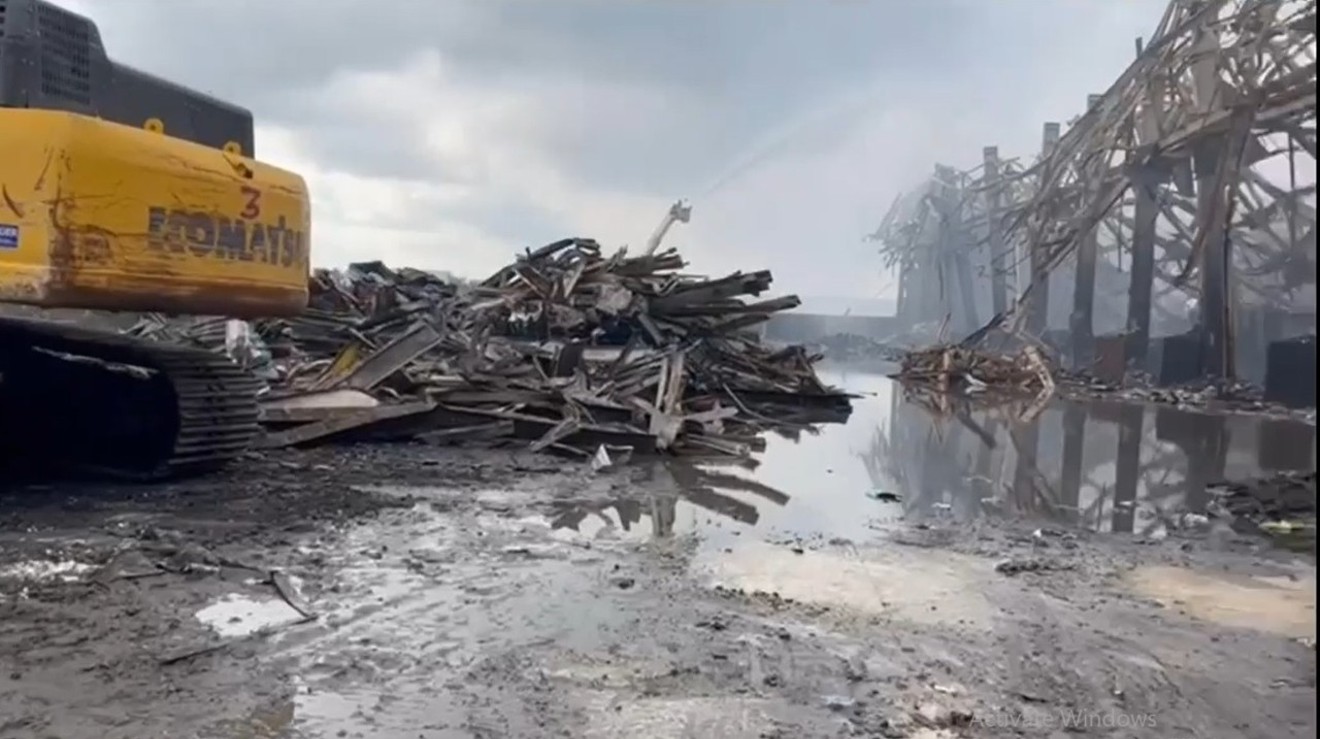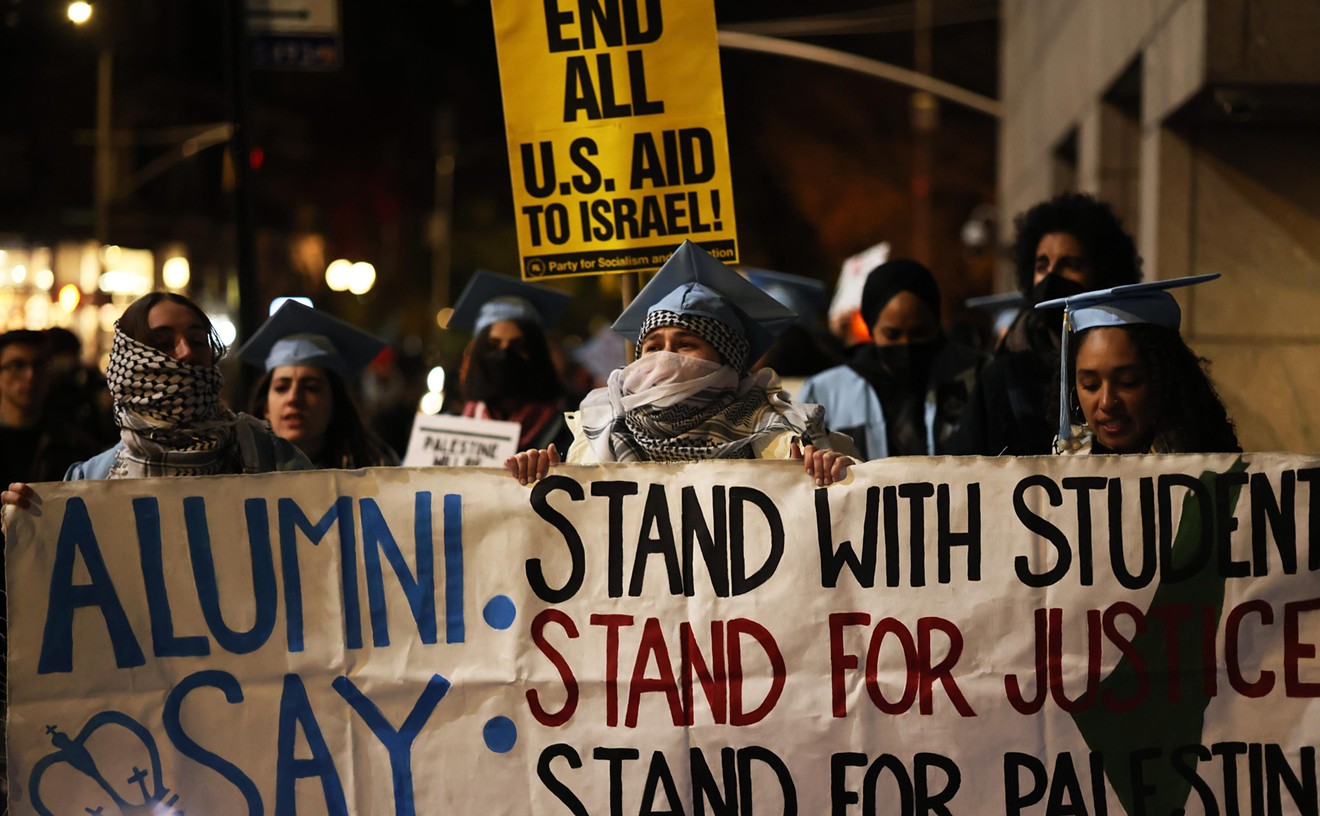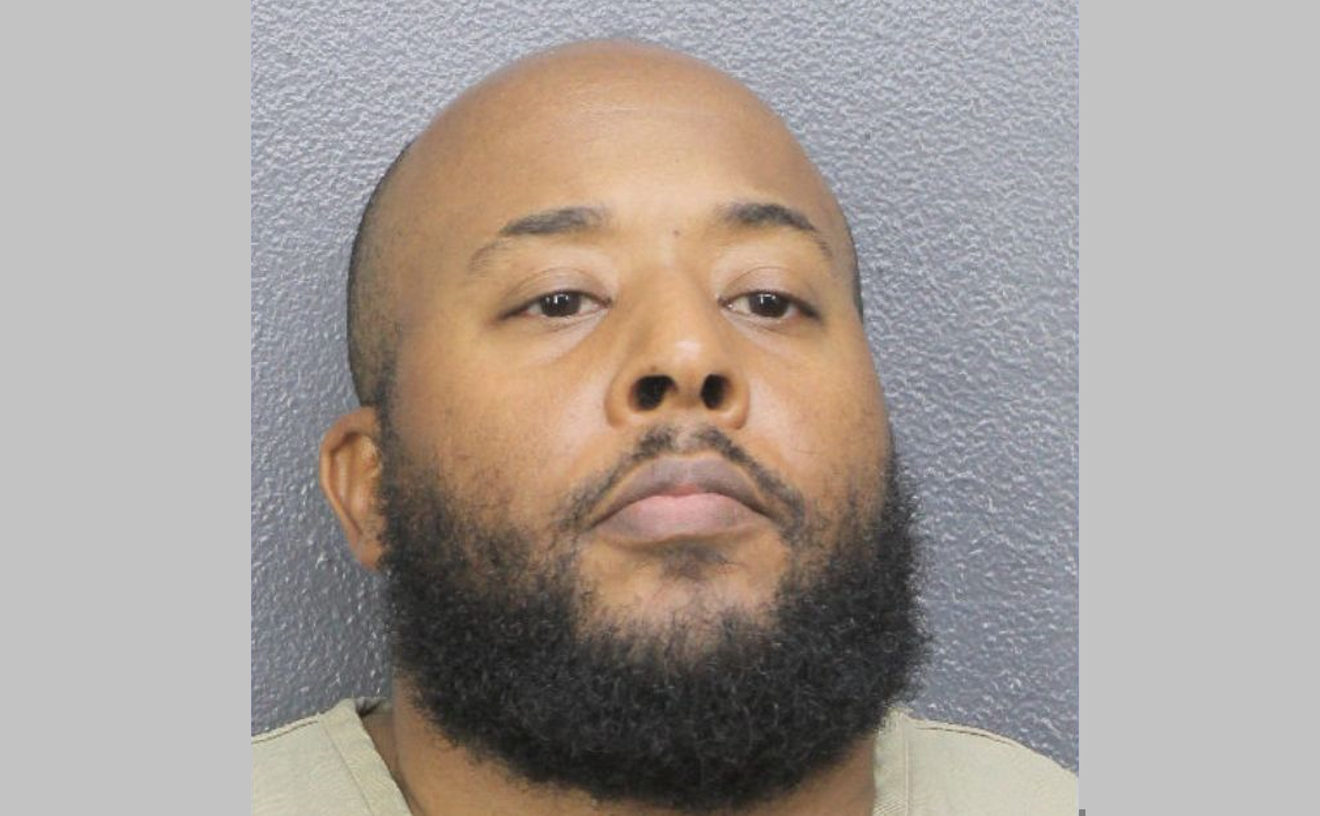Michael lived most of his life in the shadow of the Doral trash incineration plant, dealing with a stench that he describes as somewhere between "rotten milk and rotten eggs." His family home is now just three blocks away, and his two young sons attend Doral International Academy of Math and Science, a mile west of the plant property, where millions of pounds of trash were incinerated each week.
"It was so embarrassing to have guests over and for that smell to come in like that," he says.
Michael and his neighbors' calls for Miami-Dade to stop burning trash in their community were pushed to the wayside for years. But following the sprawling trash fire that engulfed the facility on February 12 and smoldered for weeks, it appears county officials are heeding residents' concerns.
On March 7, Miami-Dade County commissioners agreed to reverse a plan that would have kept trash incineration operations in the city for decades to come. Passed in July 2022, seven months before the fire, the now-axed plan involved a decade-long project to erect a brand new incinerator plant near the site of the old one, at an estimated cost of $1.4 billion. The aging plant, now charred to a cinder, would have been kept operational under contract with waste processor Covanta while the new plant was under construction.
Michael says that if the commission follows through, it will give Doral residents a fresh chance to enjoy the outdoors and be proud of where they live.
"We can have soccer tournaments without being interrupted by this horrible smell," he says. "We can have barbecues. We can have people over. We can invite family, friends, and guests to our houses without worrying that they're going to turn on the incinerator."
"It's very exciting to hear that we're going to get a fair shot at something that just makes sense," he adds.
Long before the fire, residents who were concerned about health and quality of life had banded together as the Doral Community Coalition in opposition to the incineration operations.
Last year, the coalition accused then Miami-Dade Commissioner Jose "Pepe" Diaz of fast-tracking the new plant approval and calling the July 2022 vote on the project without notice to the public. Diaz took the action shortly before he left office under term limit rules. In a court challenge to the plan, the coalition said the commission took a "five-second voice vote on one of the most important public health issues to come before the county."
The residents' group secured an ally on the commission when local politician and attorney Juan Carlos Bermudez won Diaz's vacated District 12 seat this past August. While serving as Doral's mayor, Bermudez had called the new trash plant project the product of a "hurried decision."
"He's been a resident in Doral facing the same dilemma for years now," Michael says. "So it's good that we have him inside, so he has the opportunity to share his story and get something done."
The trash fire was the final outrage for many residents. County and city officials advised them to stay in their homes and keep their windows shut while the fumes from a burning trash pit larger than a football field wafted around town. Parents debated whether to send their children into nearby schools while air quality measurements at the plant registered unhealthy levels of particulate matter.
Although Doral residents dealt with the stench for decades, the plant had filters and pollution control methods that Covanta claimed limited their exposure to heavy metals, dioxins, and other toxic substances emitted from trash incineration.
All of those controls were out the window during the trash fire.
While the blaze was raging, Texas-based air quality scientist and meteorologist David Mitchell told New Times that trash fires release an unpredictable mix of combustion products, making it hard to pin down the safety risk to the public.
"Plastics burning can emit carcinogens," said Mitchell, who has studied pollution modeling for three decades. "Here you have a situation that's totally uncontrolled. They have no control of what's going into the air."
For the county, it's back to the drawing board as to what should be done with the colossal piles of rubbish that would be trucked over to the Doral incinerator plant if not for the fire. The facility processed about half of the county's residential trash, and as Miami-Dade Mayor Daniella Levine Cava pointed out last week, there was no alternative plan in place to handle the waste. The extra trash is currently being routed to landfills while the county mulls what course to take.
"Now that we've had a facility that had a serious incident, a serious fire, I think it's time we do this the right way," Bermudez said at the March 7 commission meeting.
During the meeting, Doral locals dressed in white and raised their palms in the air to protest Covanta in the first row of seats before the dais. They filed out of the meeting room and celebrated once commissioners approved the measure to void the incinerator project.
The measure includes an option to explore other sites in Medley and on Ingraham Highway for incineration. Bermudez also included a provision to explore technologies to process garbage, other than incineration, though the measure didn't specify what those methods would be.
A report assessing the county's options is set to be completed within the next three months.
District 1 Commissioner Oliver Gilbert and District 7 Commissioner Raquel Regalado questioned how the county would fund alternative means of dealing with its waste.
"If we move this site, the properties around the site will see a tremendous gain in property values, and that will go directly to the coffers of the City of Doral. So I think that one thing that we should consider is asking them to bring their checkbook to the negotiation, should we get to a point where it is expensive... to move this to another area," Regalado said.
Michael tells New Times that trash incineration may have made sense for the Doral area in the early 1980s, when the facility was built just east of the Everglades. He recalls venturing deep into the property around the plant to play paintball or ride his bike as a kid, and seeing nothing around him but vast farmland.
Then came the development boom that shaped Doral into a busy residential city with homes situated a few hundred feet from the plant property. Doral became incorporated in 2003 and by 2010 was deemed one of the fastest growing cities in the U.S.
"Now, when you have an incinerator there in front of our charter school and another school, all this new beautiful stuff, it's not the same anymore," Michael says.
Environment
Doral Residents Rejoice After Miami-Dade Axes Plans for New Trash Plant
Doral residents now have a chance to live without the stench of the Covanta-run incinerator plant, which burned millions of pounds of Miami-area garbage on a weekly basis.

A fire sparked February 12, 2023, ravaged the Miami-Dade Resource Recovery Facility run by Covanta.
Photo by Miami-Dade Fire Rescue
[
{
"name": "Editor Picks",
"component": "17482312",
"insertPoint": "4",
"requiredCountToDisplay": "1"
},{
"name": "Inline Links",
"component": "18711090",
"insertPoint": "8th",
"startingPoint": 8,
"requiredCountToDisplay": "7",
"maxInsertions": 25
},{
"name": "Air - MediumRectangle - Combo - Inline Content",
"component": "17482310",
"insertPoint": "8th",
"startingPoint": 8,
"requiredCountToDisplay": "7",
"maxInsertions": 25
},{
"name": "Inline Links",
"component": "18711090",
"insertPoint": "8th",
"startingPoint": 12,
"requiredCountToDisplay": "11",
"maxInsertions": 25
},{
"name": "Air - Leaderboard Tower - Combo - Inline Content",
"component": "17482313",
"insertPoint": "8th",
"startingPoint": 12,
"requiredCountToDisplay": "11",
"maxInsertions": 25
}
]










